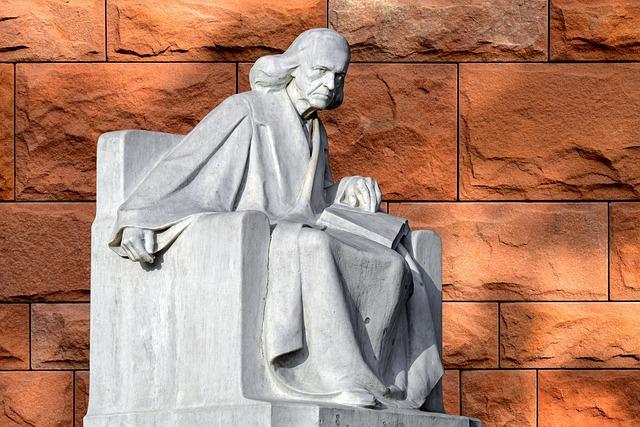The Nobel Peace Prize: A History of Controversial Nominees
As the world eagerly anticipates the announcement of this year’s Nobel Peace Prize laureate, a closer examination of the award’s storied history reveals a pattern of controversial selections that often ignite fierce debate and scrutiny. Since its inception in 1901, the Nobel Peace Prize has not only celebrated those who advocate for peace and humanitarian efforts but has also drawn criticism for honoring figures whose methods or political affiliations provoke significant discourse. From Robert Mugabe’s nomination to the contentious award given to U.S. President Barack Obama, the legacy of the prize is intricately woven with instances of public dissent and moral quandary. This article explores the complex narratives behind some of the most controversial nominees in the prize’s history, shedding light on the ways in which these choices reflect the evolving landscape of global politics and the ideals of peace itself.
Controversial Choices: The Impact of Nominees on the Nobel Peace Prize’s Legacy
The Nobel Peace Prize has often served as a battleground for heated debates about the essence of peace and the criteria by which it is judged. Historically, the nominees have sparked controversy not just for their political stances but also for their complex legacies, prompting a reevaluation of the Prize’s intent. Some notable instances include:
- Henry Kissinger – A key figure in U.S. foreign policy during the Vietnam War, awarded in 1973, raised questions about the morality of peace achieved through dubious compromises.
- Aung San Suu Kyi – Once celebrated as a symbol of democracy, her later tenure in power faced severe backlash due to human rights violations in Myanmar.
- Obama – Awarded for his potential to bring change, critics argued that the honor was bestowed prematurely amid ongoing conflicts.
These controversial choices may challenge the credibility and integrity of the Nobel Committee as they navigate the fine line between rewarding aspirational objectives and recognizing tangible impacts. The impact of these nominations extends beyond the individuals themselves, reflecting broader geopolitical tensions and ideological divides. A closer examination through data reveals patterns in nominee selections, as outlined in the table below:
| Year | Nominee | Controversy |
|---|---|---|
| 1973 | Henry Kissinger | Vietnam War policies |
| 1991 | Aung San Suu Kyi | Suppression of Rohingya |
| 2009 | Barack Obama | Ongoing wars in Iraq and Afghanistan |
Navigating Political Tensions: How the Prize Reflects Global Conflict Dynamics
In recent years, the Nobel Peace Prize has increasingly sparked debate due to its recognition of nominees embroiled in political controversies. The award often reflects not just individual achievements but the complex global dynamics that shape conflicts around the world. Notably, nominees may include leaders accused of human rights violations or those navigating fraught geopolitical landscapes. Such selections invite scrutiny and raise fundamental questions about the criteria used to define peace in an age where conflicts are multidimensional and deeply rooted.
Critics argue that awarding the prize to contentious figures can dilute its prestige and message, complicating the public’s perception of what constitutes a true peacemaker. Among the myriad considerations are:
- Political Reconciliation: Nominees often represent factions navigating power shifts, suggesting peace is sometimes a product of political expediency rather than ethical leadership.
- Global Perception: Awards can foster international dialogues, yet they may backfire by complicating relations with nations disillusioned with the recipient’s past actions.
- Media Coverage: The spotlight on controversial nominees can overshadow genuine grassroots peace movements that often struggle for recognition.
| Year | Recipient | Controversy |
|---|---|---|
| 2016 | Juan Manuel Santos | Peace deal with FARC remains contentious |
| 2009 | Barack Obama | Criticized for military actions during presidency |
| 1994 | Yitzhak Rabin & Yasser Arafat | Ongoing Israeli-Palestinian conflict |
Towards a More Inclusive Award Process: Recommendations for Future Nominations
To foster a more inclusive award process, it is imperative that the Nobel Peace Prize committee consider broadening its criteria and outreach. This could include actively seeking nominations from underrepresented regions and communities, ensuring that diverse voices and experiences are acknowledged. One potential strategy would be to implement a more transparent nomination framework, allowing for better visibility into the nomination process and criteria used. This not only promotes trust but also encourages more nominations from a wider array of contenders. Additionally, outreach programs in various countries can help identify grassroots activists who might otherwise go unnoticed by the mainstream nomination channels.
Furthermore, the committee should prioritize criteria that emphasize collective efforts over individual achievements. Many significant peace initiatives arise from collaborative efforts rather than solitary actions. Not only would recognizing teams or organizations highlight the importance of collaboration, but it would also reduce the spotlight on controversial figures whose actions or beliefs may detract from the essence of the Peace Prize. Emphasizing a thematic approach, such as “Innovation in Peacebuilding” or “Youth in Advocacy,” could draw attention to those working on the front lines of change without adding to the divisiveness that can accompany high-profile nominees.
| Innovative Themes | Potential Nominees |
|---|---|
| Youth in Advocacy | Local youth-led organizations |
| Community Resilience | Grassroots coalitions |
| Environmental Peace Efforts | Activist groups promoting sustainability |
The Way Forward
As the Nobel Peace Prize continues to spark conversations around the world, it remains clear that its selection process is as intriguing as the prize itself. The persistent trend of awarding the accolade to controversial nominees underscores the complexities of peacebuilding and the multifaceted nature of conflict resolution. While some laureates elicit widespread acclaim, others face significant backlash, raising questions about the criteria for selection and the implications for the global dialogue on peace. As the Nobel Committee grapples with these decisions, the conversation around the prize evolves, reflecting the challenges and aspirations of our time. Looking ahead, the legacy of the Nobel Peace Prize will undoubtedly remain intertwined with the narratives of those who challenge the status quo, prompting society to reflect on its values and the ongoing pursuit of a more peaceful world.









